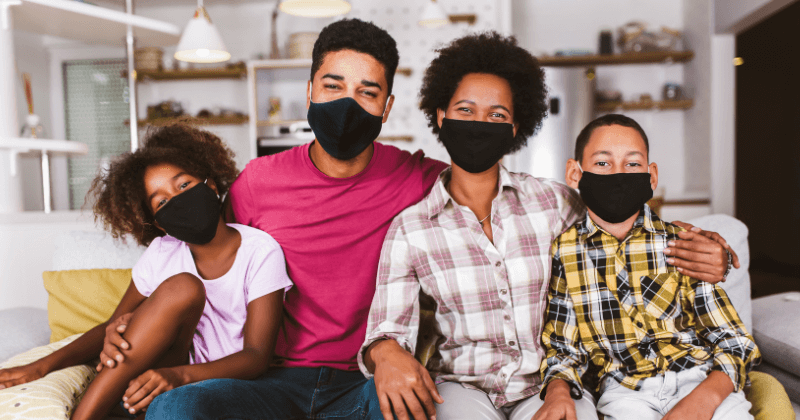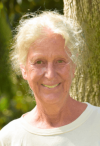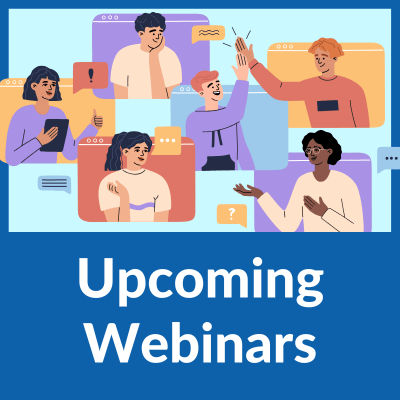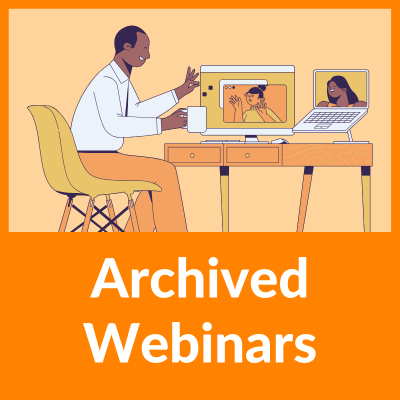
Aunque se ha prestado mucha atención a las personas que se han enfermado por COVID-19 o que sufren de COVID-19 prolongado, no se les ha dado el mismo nivel de atención a la experiencia que han vivido sus familiares y sus cuidadores. En este seminario presentaré un modelo de testimonio que nos relata sobre los diversos sentimientos que pueden experimentar los miembros de la familia y que pueden ir desde la frustración e impotencia hasta la armonía y competencia. También, hablaré sobre cómo una persona enferma puede estar presente pero no completamente "allí", lo que puede crear patrones de interacción familiar desafiantes. Haré reflexiones sobre cómo los profesionales de salud pueden prepararse para trabajar con familias afectadas por COVID-19 o COVID-19 prolongado y presentaré algunas sugerencias para guiar a las parejas que estén enfrentando desafíos en sus relaciones.
Vea la grabación del seminario web
Descargue las diapositivas de la presentación
Tomar la evaluación
- Identificar tres formas en que COVID-19 y COVID-19 prolongado impacta a las familias a través de cambios en el funcionamiento del cuerpo y la mente,
- Describir dos formas en que presenciar el sufrimiento de las personas enfermas en la familia afecta a los que están sanos, y
- Explicar cómo la enfermedad puede crear en la persona enferma esta experiencia de que se ha perdido a sí mismo.
Presentadores

Kaethe
Weingarten
Ph.D.
Red de Proveedores de Servicios de Salud para Migrantes
La doctora Kaethe Weingarten es la fundadora del programa Testigo a Testigo (W2W por sus siglas en inglés) de MCN. El objetivo de W2W es apoyar a quienes ayudan a otras personas principalmente a proveedores de servicios de salud, abogados y periodistas que trabajan con poblaciones vulnerables. La Dra. Weingarten recibió su doctorado en la Universidad de Harvard en 1974. Ha impartido clases en Wellesley College (1975-1979) y en la Facultad de Medicina de Harvard (1981-2017), donde fue profesora clínica asociada de psicología en el Departamento de Psiquiatría del Hospital Infantil de Boston y luego en la Alianza de Salud de Cambridge y en el Instituto de la Familia de Cambridge (1982-2009). Fundó y dirigió el programa de familias, trauma y resiliencia en el Instituto de la Familia de Cambridge. A nivel internacional, ha enseñado en África, Australia, Canadá, Europa y Nueva Zelanda, donde fue especialista del programa Fullbright. Ha realizado más de trescientas presentaciones y ha sido la oradora principal en numerosas conferencias locales, nacionales e internacionales. La Dra. Weingarten forma parte de la junta editorial de cinco revistas científicas. En el 2002 recibió el máximo galardón de la Academia Americana de Terapia Familiar (AFTA por sus siglas en inglés), por el premio Contribución a la Teoría y Práctica de la Familia. Ha escrito sobre su trabajo en seis libros (de los que es autora o editora) y más de 100 artículos, capítulos y ensayos. Su libro más reciente, Common Shock: Witnessing Violence Every Day- How We Are Harmed, How We Can Heal, ganó el premio Nautilus 2004 al Cambio Social. El trabajo de la Dra. Weingarten se centra en el desarrollo y la difusión del modelo de testimonio. Una de las ramas del trabajo que realiza la Dra. Weingarten se relaciona con los efectos que tiene ser testigo de la violencia y el trauma en el contexto de los conflictos domésticos, interétnicos, raciales, políticos y de otro tipo. La otra rama de su trabajo se desarrolla en el contexto de la atención en salud, la enfermedad y la discapacidad. Su trabajo sobre la esperanza razonable ha sido ampliamente citado. En 2013, la Dra. Weingarten y su pareja se mudaron a Berkeley, California, para estar cerca de sus hijos y sus cinco nietos. Allí volvió a practicar danza y coreografía, lo que había dejado de lado durante cuarenta y cinco años. Desde que se mudó a Berkeley, ella y su colaborador de danza han recibido cinco subvenciones por las coreografías compartidas en espacios públicos en las que participan bailarines mayores y con historias basadas en el modelo de testimonio. En 2018 se presentaron en el Museo de California de Oakland. En su tiempo libre le gusta hacer senderismo, pastelería y tejer mantas.

